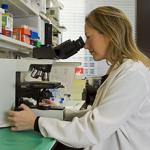“There is absolutely no doubt that along with exercise and favourable genetics, diet is a key preventative when it comes to disease. But curing disease by eating specific foods is another matter.
innovation
In medicine, the diffusion of innovation occurs over years. I have seen laparoscopic abdominal surgery (minimally invasive surgery) replace open surgery over 3 or 4 years in my clinical lifetime.
Lately I have become intrigued by the word, innovation. Innovation is used as a criterion for funding grants, for status in reviews of our antibiotic pipeline, for intelligence, imagination and many other great things.
Science is an imperfect pursuit at its core. It advances in stops and starts, and only with time and trials do beliefs morph into models and then facts.
Friday, April 26th: "FDA OKs New Topical Treatment Duobrii for Plaque Psoriasis."
What could sound more revolutionary than a “cancer moonshot?” Or, the recent “groundbreaking” message heard around the world of a company claiming a
Today is World Cancer Day which means we internationally encourage raising awareness about cancer while promoting and supporting efforts in prevention, early detection and advancement in treatments.
A company made grand pronouncements about revolutionizing cancer treatment claiming their discovery is so disruptive that, according to its
What drives innovation? After all, innovation is how we feed more with less and enhance and extend our lives. Is improvement something we can control by who and how we organize research and implementation?
In an announcement of no surprise, the U.S.












